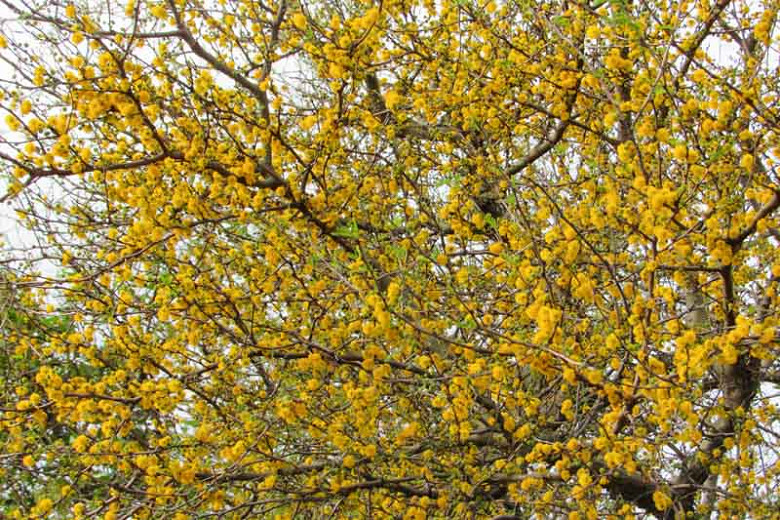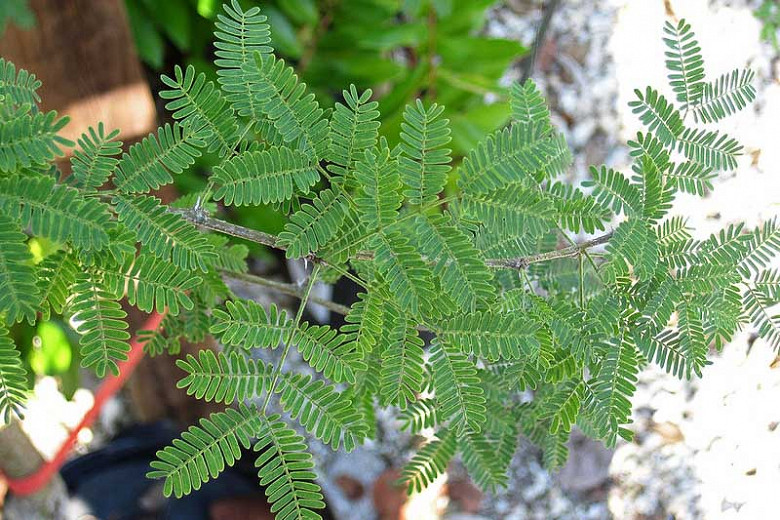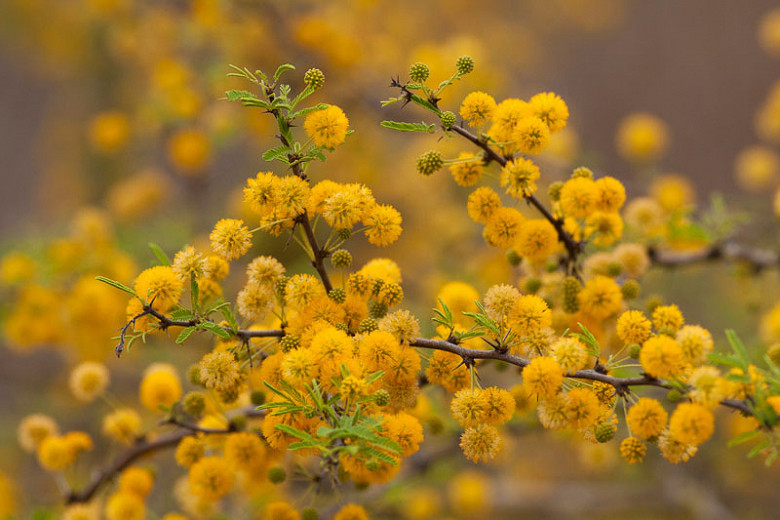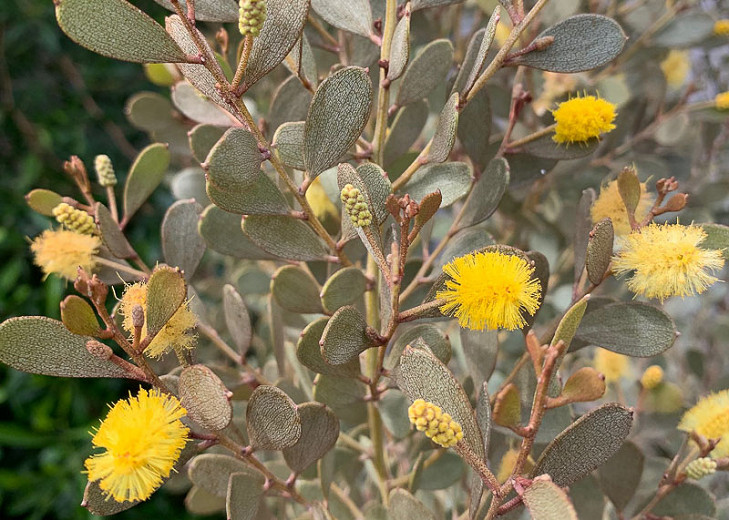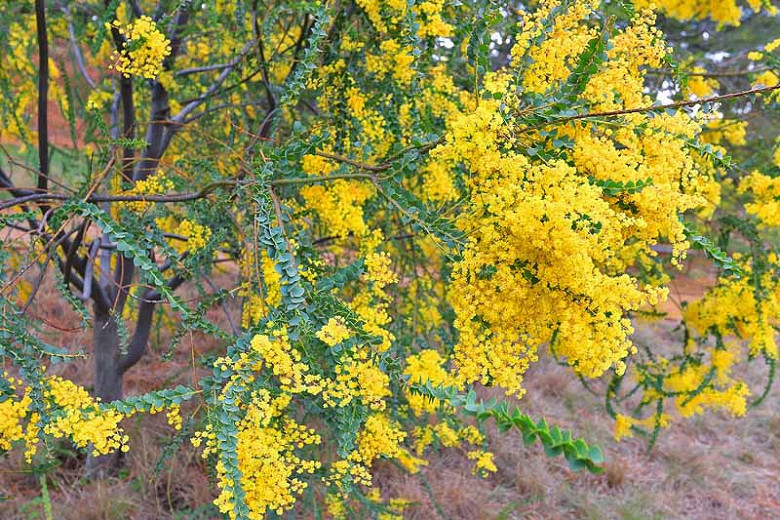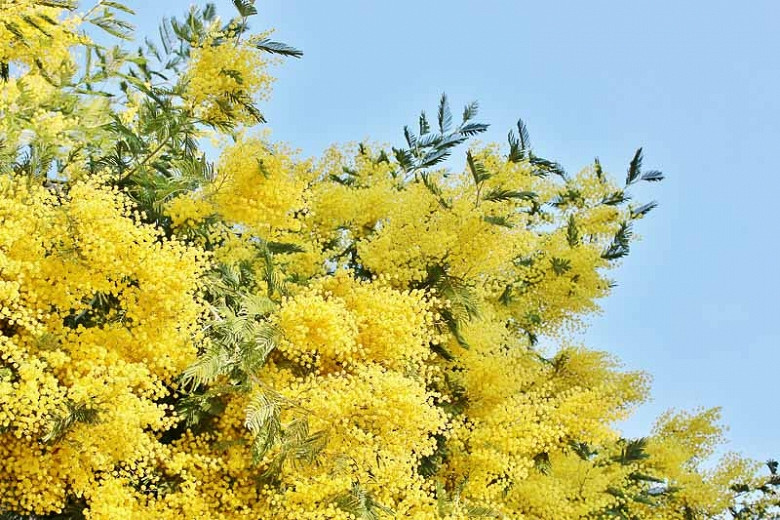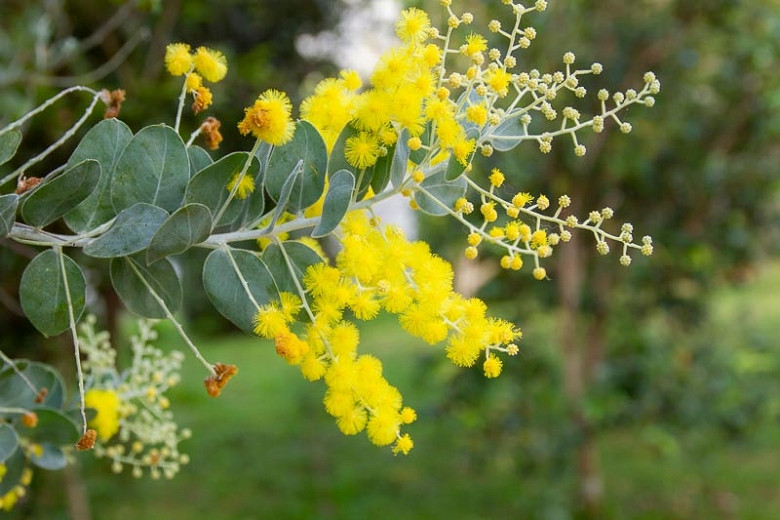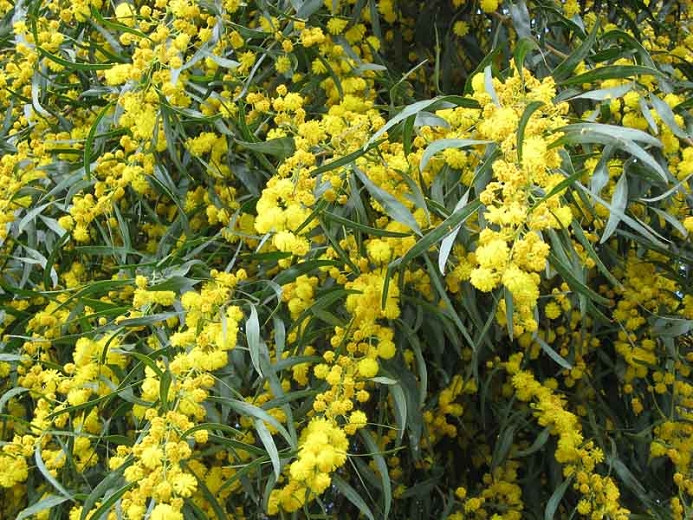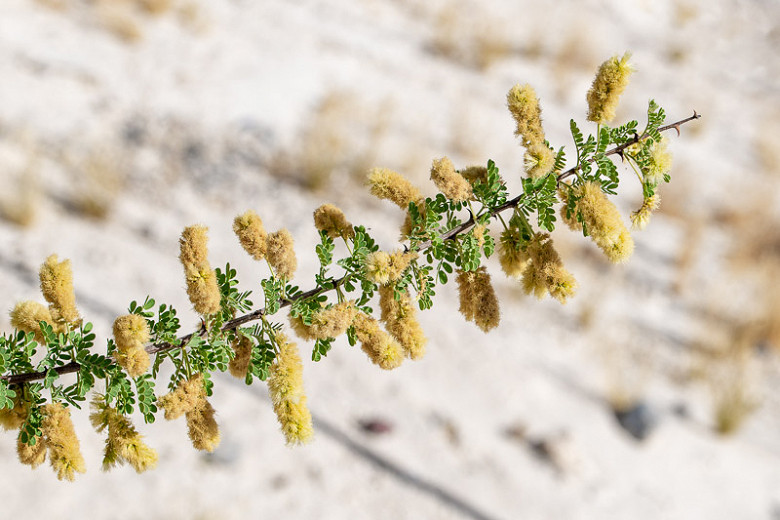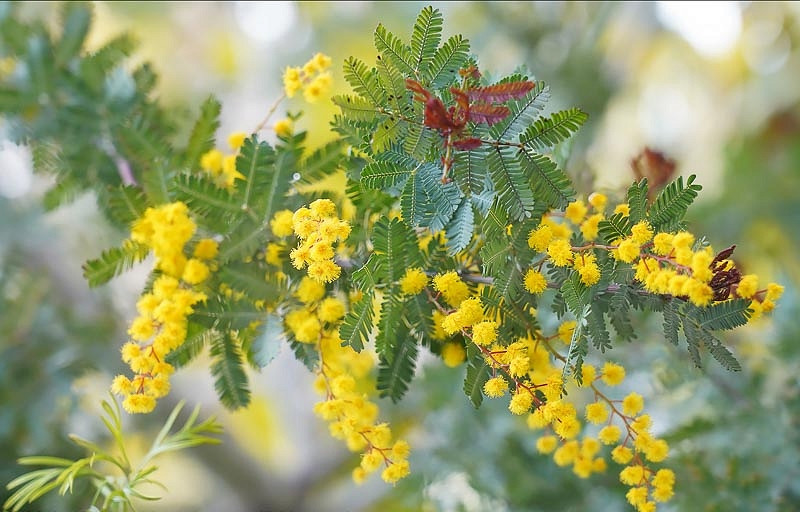Acacia farnesiana (Sweet Acacia)
Prized for its highly fragrant flowers, Acacia farnesiana (Sweet Acacia) is a semi-evergreen multi-trunked shrub or small tree with a naturally spreading, vaselike shape. Its zig-zag stems are fully armed with sharp thorns and clad with feathery, finely divided leaflets of soft green color. The foliage remains evergreen in warm winter areas provided the soil is not allowed to dry out. Clouds of small, bright golden-yellow, puff-like flowers, 1/2 in. (1 cm), appear in clusters in late winter to early spring, then sporadically after each new flush of growth, providing a long-lasting floral display. The flowers give way to short, plump, nearly cylindrical seed pots, 2-3 in. long (5-7 cm). Planted ornamentally since the 1600s, Sweet Acacia is extensively planted in Southern Europe for its delightfully scented flowers, from which is extracted the cassie perfume. Highly drought tolerant, pest and insect resistant, and low-maintenance, this Southern native makes an excellent barrier planting (thanks to its sharp thorns) or nesting cover for wildlife. When trained as a small tree, it is likely to become a conversation piece when adorned with cascades of fragrant yellow flowers. Relatively short-lived, probably less than 30 years.
- Grows up to 15-20 ft. tall and wide (450-600 cm). Adds 24-36 in. per year (60-90 cm). Can form dense thickets from suckers.
- Performs best in full sun or part shade in loose, dry to medium, well-drained soils. Best flower production in full sun. Intolerant of heavy, clay soils or wet soils. Salt and drought tolerant once established.
- Plant Sweet Acacia in an area where children and visitors will not come in contact with its sharp spines.
- Prune as needed to reinforce the structure and form of the tree.
- Generally trouble-free, but keep an eye out for shot hole borer, caterpillars, and root rot. Deer resistant.
- Propagate by scarified seeds.
- Native from southern California to southern Florida, Mexico, Central America to northern South America.
Requirements
| Hardiness | 9 – 11 |
|---|---|
| Climate Zones | 13, 14, 15, 16, 17, 18, 19, 20, 21, 22, 23, 24 |
| Plant Type | Shrubs, Trees |
| Plant Family | Acacia |
| Exposure | Full Sun, Partial Sun |
| Season of Interest | Spring (Early,Mid)Winter |
| Height | 15' – 20' (4.5m – 6m) |
| Spread | 15' – 20' (4.5m – 6m) |
| Water Needs | Low, Average |
| Maintenance | Low |
| Soil Type | Loam, Sand |
| Soil pH | Acid, Alkaline, Neutral |
| Soil Drainage | Moist but Well-Drained, Well-Drained |
| Characteristics | Fragrant, Showy |
| Native Plants | United States, California, Southeast, Alabama, Florida, Georgia, Louisiana, Mississippi, Southwest, Arizona, New Mexico, Texas |
| Tolerance | Deer, Drought, Dry Soil, Salt |
| Garden Uses | Hedges and Screens |
| Garden Styles | Mediterranean Garden |
